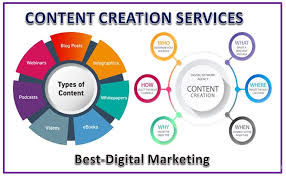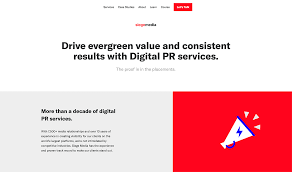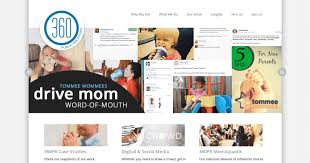Unlocking Success: The Strategic Communications Consultant’s Guide to Effective Messaging
The Role of a Strategic Communications Consultant
In today’s fast-paced and competitive business environment, the role of a strategic communications consultant is more important than ever. These professionals play a vital role in helping businesses effectively communicate their messages to internal and external stakeholders.
Strategic communications consultants are experts in developing communication strategies that align with an organisation’s goals and objectives. They work closely with senior management to identify key messages, target audiences, and channels for communication.
One of the key responsibilities of a strategic communications consultant is to ensure consistency in messaging across all communication platforms. They help businesses craft compelling narratives that resonate with their target audience and enhance brand reputation.
These consultants also play a crucial role in crisis communication management. In times of crisis, they provide guidance on how to effectively communicate with stakeholders, mitigate reputational damage, and maintain transparency.
Furthermore, strategic communications consultants are instrumental in building thought leadership for businesses. They help position executives as industry experts through targeted messaging, media relations, and content creation.
Overall, the role of a strategic communications consultant is multifaceted and requires a deep understanding of business objectives, audience dynamics, and communication trends. By leveraging their expertise, businesses can enhance their brand visibility, reputation, and overall success in the market.
Mastering Strategic Communications: 9 Essential Tips for Consultants
- Understand the client’s goals and objectives thoroughly.
- Conduct extensive research and analysis to inform communication strategies.
- Develop clear and concise messaging tailored to the target audience.
- Utilise a mix of traditional and digital communication channels effectively.
- Stay updated on industry trends and best practices in strategic communications.
- Build strong relationships with key stakeholders and media contacts.
- Monitor and evaluate the success of communication strategies regularly.
- Be adaptable and ready to adjust strategies based on feedback and results.
- Maintain transparency, integrity, and professionalism in all communications.
Understand the client’s goals and objectives thoroughly.
To excel as a strategic communications consultant, it is paramount to thoroughly understand the client’s goals and objectives. By delving deep into the client’s vision and desired outcomes, consultants can tailor communication strategies that are precisely aligned with the client’s overarching mission. This comprehensive understanding serves as the foundation for crafting compelling messages, selecting appropriate communication channels, and ultimately driving impactful results that resonate with the client’s target audience.
Conduct extensive research and analysis to inform communication strategies.
To excel as a strategic communications consultant, it is imperative to conduct thorough research and analysis to inform communication strategies. By delving deep into market trends, audience preferences, competitor activities, and industry insights, consultants can gain valuable insights that shape effective communication plans. This meticulous approach ensures that strategies are tailored to meet specific objectives and resonate with the target audience, ultimately leading to successful outcomes and impactful communication campaigns.
Develop clear and concise messaging tailored to the target audience.
Developing clear and concise messaging tailored to the target audience is a fundamental tip for strategic communications consultants. By understanding the specific needs, preferences, and communication channels of the target audience, consultants can craft messages that resonate effectively and drive desired outcomes. Clear and concise messaging helps to capture attention, convey key information efficiently, and build a strong connection with the audience. This tailored approach not only enhances engagement but also ensures that the communication strategy aligns with the overall goals of the business or organisation.
Utilise a mix of traditional and digital communication channels effectively.
To maximise the impact of strategic communication efforts, it is essential for a communications consultant to utilise a blend of traditional and digital communication channels effectively. By integrating traditional methods such as press releases, print media, and face-to-face interactions with digital platforms like social media, email marketing, and online content, businesses can reach a wider audience and engage with them in a more meaningful way. This balanced approach ensures that key messages are communicated across various channels to cater to different preferences and behaviours of target audiences, ultimately enhancing brand visibility and reputation in today’s diverse communication landscape.
Stay updated on industry trends and best practices in strategic communications.
To excel as a strategic communications consultant, it is essential to stay updated on industry trends and best practices in strategic communications. By keeping abreast of the latest developments, emerging technologies, and innovative strategies within the field, consultants can offer valuable insights and fresh perspectives to their clients. This commitment to continuous learning ensures that consultants remain at the forefront of the industry, enabling them to deliver effective and cutting-edge communication solutions that drive success for their clients.
Build strong relationships with key stakeholders and media contacts.
Building strong relationships with key stakeholders and media contacts is a crucial tip for a strategic communications consultant. By fostering positive connections with these important individuals and organisations, consultants can enhance their ability to effectively convey messages, secure media coverage, and navigate challenging situations with greater ease. Strong relationships built on trust and mutual respect can lead to valuable opportunities for collaboration, increased visibility, and ultimately, successful communication outcomes for the businesses they represent.
Monitor and evaluate the success of communication strategies regularly.
Monitoring and evaluating the success of communication strategies regularly is a crucial tip for strategic communications consultants. By consistently assessing the effectiveness of implemented strategies, consultants can identify what is working well and what areas may need adjustment. This ongoing evaluation allows consultants to make data-driven decisions, refine messaging approaches, and adapt tactics to better achieve the desired outcomes. Through regular monitoring and evaluation, strategic communications consultants can ensure that their efforts are aligned with business goals and continuously strive for improvement in delivering impactful communication campaigns.
Be adaptable and ready to adjust strategies based on feedback and results.
To excel as a strategic communications consultant, it is crucial to be adaptable and prepared to adjust strategies based on feedback and results. By remaining flexible and responsive to the evolving needs of clients and the dynamic communication landscape, consultants can refine their approaches for optimal effectiveness. Embracing feedback and data-driven insights enables consultants to fine-tune strategies, enhance outcomes, and ultimately deliver impactful communication solutions that drive success for their clients.
Maintain transparency, integrity, and professionalism in all communications.
It is essential for a strategic communications consultant to uphold transparency, integrity, and professionalism in all communications. By maintaining these core values, consultants can build trust with stakeholders, enhance credibility for their clients, and ensure that messages are received positively. Transparency fosters open and honest dialogue, integrity builds a strong foundation of ethics and trustworthiness, and professionalism ensures that communications are conducted with respect and expertise. Adhering to these principles not only strengthens the consultant’s reputation but also contributes to the overall success of communication strategies in achieving desired outcomes.










